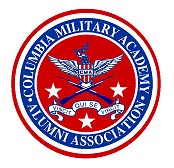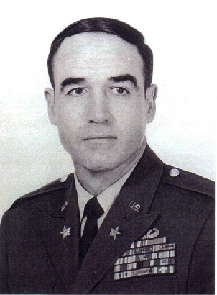
 |
|
|
 |
Colonel Martin Damon Howell was born 13 Dec. 1926 in Jacksonville, FL. A 1943 graduate of CMA, "Tiger" Howell enlisted as an Apprentice Seaman, U.S. Navy in 1944. He was an outstanding scholar and athlete while attending CMA. He roomed in Academy Hall and was First Sergeant of "B" Company in 1943. The name "Tiger" refers to his attitude on the football playing field. From 1964 he served in the U.S. Army for 25 years following his graduation from the U.S. Military Academy in 1949. As a tackle on the undefeated Army teams of 1945, '46 and '48, he was selected for the All Eastern Team. While in the Army, he earned a Master's Degree in international relations from the University of Mississippi in 1959. He later taught foreign policy at the Army Information Institute while completing work for a Ph.D. in government at New York University in 1962. He also received the Founders Day Medal from New York University. From 1964 to 1966, Howell served as Military Assistance Advisory Group Liaison with the I German Corps and then the North Atlantic Treaty Organization in the office of the Assistant Secretary of Defense for International Security Affairs. Then, volunteering for Vietnam, he commanded the First of the Black Horse, the 1st. Squadron of the 11th Cavalry Regiment. On the 21st. of Nov., the 1st Platoon of "C" Troop was ambushed by the 275th Viet Cong (V.C.) Regiment. The result was the first victory for an Armored U.S. force against the V.C. - U.S., 3 dead, V.C's 37. Colonel Howell further refined a defense against ambushes as proven on Dec. 2, 1966 when the 274th V.C. Regiment ambushed a platoon of the 1st. Squadron. Tiger, with an immediate response of helicopter gunships, artillery and air strikes fashioned the appropriate response for every future V.C. ambush. The score - 101 V.C. dead, Americans 0. His tactics were then adopted for all U.S. Armored units in Vietnam. After service in Vietnam from 1966 to 1967, he was commander of the second regiment of cadets at West Point. He then attended the Army War College and afterwards was assigned as the commander of the 14th Armored Cavalry Regiment in Fulda, Germany. After Fulda, he then attended the Center for International affairs at Harvard University and was awarded the distinction of being a Fellow. Following Harvard, he became the senior deputy director of the Army staff.
From 1974 to 1977 he served in the Federal Energy Administration as secretary for management. From 1977 to 1979 he served as assistant to the Chairman of the House Merchant Marine and Fisheries Committee. In 1981 he was appointed by the President as Director of the Office of U.S. Foreign Disaster Assistance in the Agency for International Development with the rank of SES VI, the highest rank in the Senior Executive Service. |
 |
|
 |